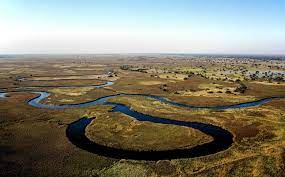APA-Windhoek (Namibia) Namibia has accede to the United Nations Water Convention, becoming the first southern African country and the eighth on the continent to agree to a global treaty that seeks to address cross-border water challenges.
According to a statement from United Nations Economic Commission for Europe (UNECE) on Monday, Namibia became a party to the Convention on the Protection and Use of Transboundary Watercourses and International Lakes (UN Water Convention) when it acceded to the treaty on June 8.
“As the first Party in southern Africa, Namibia opens the door to more countries in the region joining this unique treaty to help address water challenges across national borders, which is especially crucial due to rising climate change impacts,” UNECE executive secretary Olga Algayerova said.
She noted that Namibia’s accession, which followed that of Nigeria and Iraq earlier this year, “shows the relevance of the water convention as key means for supporting sustainable development and preventing conflict over shared waters.”
Algayerova said Namibia’s accession would help to consolidate its long-standing commitment to transboundary water cooperation in southern Africa.
Namibia has ratified basin agreements and is a member state of four basin organisations. These are the Okavango-Cubango River Commission shared with Angola and Botswana; Orange-Senqu River Commission shared with South Africa, Botswana and Lesotho; Zambezi Watercourse Commission with all other riparian states of Angola, Botswana, Malawi, Mozambique, Tanzania, Zambia and Zimbabwe; and the Cuvelai Watercourse Commission with Angola.
At a regional level, Namibia is a party to the 2000 Southern African Development Community (SADC) Revised Protocol on Shared Watercourses and to the 1997 UN Convention on the Law of the Non-navigational Uses of International Watercourses (Watercourses Convention).
Water Minister Calle Schlettwein said transboundary water cooperation was the cornerstone of Namibia’s water security.
“I firmly believe that through this accession, Namibia will not only reap substantial benefits from its participation in this global legal framework but will also have the opportunity to engage with fellow members in promoting the principles of peace and equity in transboundary water sharing,” Schlettwein said.
Open to accession by all UN Member States since 1 March 2016, the Convention now counts 50 parties.
There are currently more than 20 countries around the world are in the accession processes, predominantly from across Africa and Latin America.
JN/APA


